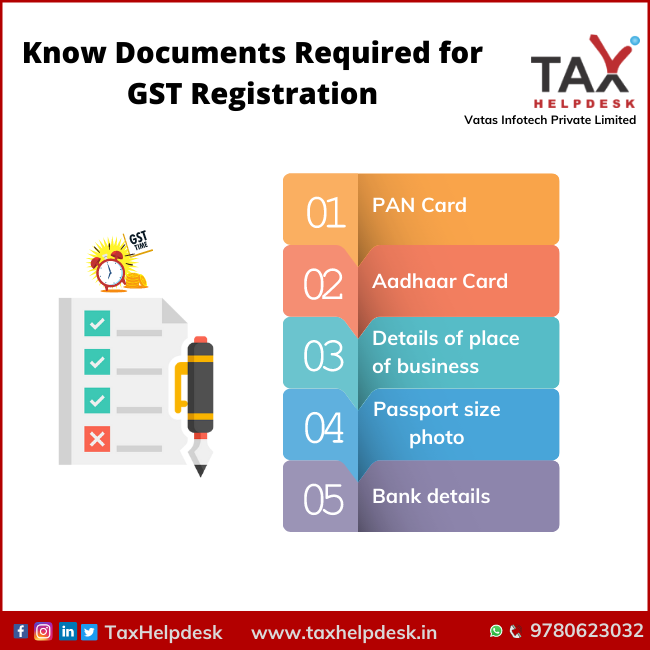Necessary Overview to Singapore GST Registration for New Businesses
Necessary Overview to Singapore GST Registration for New Businesses
Blog Article
The Ultimate Guide to Streamlining the GST Enrollment Process and Requirements for Small Company Owners

Comprehending GST Fundamentals
To understand the fundamentals of the Goods and Solutions Tax Obligation (GST) system, local business proprietors should first recognize its underlying effects and principles. GST is a value-added tax obligation imposed on the majority of products and solutions for residential usage. It aims to simplify the tax procedure by changing multiple indirect taxes enforced by the state and main governments. Under the GST program, services are required to collect and register tax in behalf of the government, making certain transparency and conformity.
Among the key concepts of GST is input tax obligation debt, which allows companies to assert credit rating for taxes paid on their purchases. This mechanism avoids the plunging result of taxes and advertises effectiveness in the tax obligation system. In addition, GST is a destination-based tax, implying that the tax is levied at the point of consumption rather than the point of beginning. This makes sure reasonable distribution of tax obligation revenue among states based on where the services or goods are eaten. Recognizing these standard principles is critical for small company owners to navigate the intricacies of the GST system and make sure compliance with the legislation.
Eligibility Standards for Enrollment
Having actually established a fundamental understanding of GST concepts, local business proprietors should now meet particular qualification standards to wage the registration procedure. In India, entities participated in the supply of items or services with an annual aggregate turn over exceeding Rs. 40 lakhs (Rs. 10 lakhs for special category states) are required to register for GST. Additionally, certain companies such as those involved in inter-state supply of products, casual taxable persons, and those needed to pay tax obligation under the reverse fee system should register for GST regardless of their turn over. Furthermore, businesses that were signed up under the previous tax routine (VAT, solution tax obligation, etc) are additionally mandated to sign up under GST. Nonetheless, agricultural organizations that just supply produce out of primary manufacturing are exempt from GST registration. It is critical for entrepreneur to very carefully evaluate their qualification based on these requirements to guarantee compliance with the law and prevent any kind of charges for non-compliance.
Papers Needed for GST Registration

Simplified Enrollment Process Steps
Adhering to the collection and confirmation of the requisite papers, the published here enrollment procedure for GST can be navigated via a series of simplified steps made to help with effective compliance for small service owners. Upon effective confirmation, an Application Reference Number (ARN) is released, showing the conclusion of the GST registration procedure. By adhering to these simplified actions, tiny business proprietors can successfully sign up for GST and make certain compliance with tax regulations.
Tips for Ensuring Conformity
To keep regulatory adherence and functional integrity, diligent oversight and positive procedures are pivotal in making certain compliance with GST needs for small company owners. Small company owners should remain updated with GST regulations, submitting due dates, and any kind of changes in tax obligation rates to stay clear of fines and maintain a good standing with tax obligation authorities. One vital tip for conformity is to maintain thorough and accurate records of all deals, including invoices, receipts, and expenses associated to GST. Routinely resolving financial records with GST returns can assist in determining and remedying any type of disparities promptly. Additionally, conducting periodic internal audits or seeking expert help can make certain that the organization is adhering to all GST regulations appropriately. It is additionally essential for little company owners to spend in GST-compliant audit software that can enhance the tax obligation declaring process and reduce errors. Attending GST recognition workshops or training programs can boost understanding and compliance with GST policies, inevitably benefiting the business in the long run.
Verdict
Finally, local business proprietors have to recognize the basics of GST, meet the eligibility standards, gather needed documents, and follow the streamlined registration procedure steps to guarantee compliance. By streamlining the internet GST registration procedure and requirements, local business owners can stay clear of charges and run their businesses smoothly within the lawful framework - Singapore GST Registration. It is vital for small company proprietors to remain enlightened and compliant with GST laws to preserve an effective company procedure
Little company owners seeking GST enrollment must guarantee they collect and submit the necessary papers to complete the registration procedure effectively. The documents needed for GST registration commonly consist of evidence of business registration or consolidation, FRYING PAN (Irreversible Account Number) card of the company address, identification and entity proof of the promoters/partners/directors, photographs, address evidence of the area of organization, bank account declarations or terminated cheques, and permission kinds. Attending GST understanding workshops or training programs can improve understanding and conformity with GST regulations, eventually profiting the business in the long run.
By simplifying the GST enrollment procedure and needs, small company proprietors can stay clear of fines and operate their companies efficiently within the lawful structure. It is visit essential for little service proprietors to remain compliant and informed with GST policies to preserve an effective service procedure.
Report this page